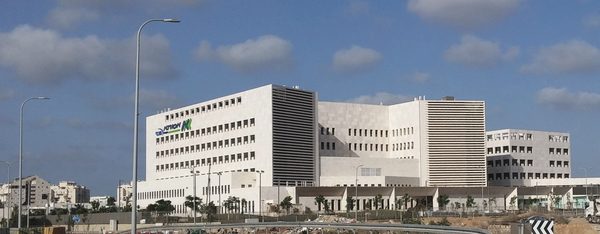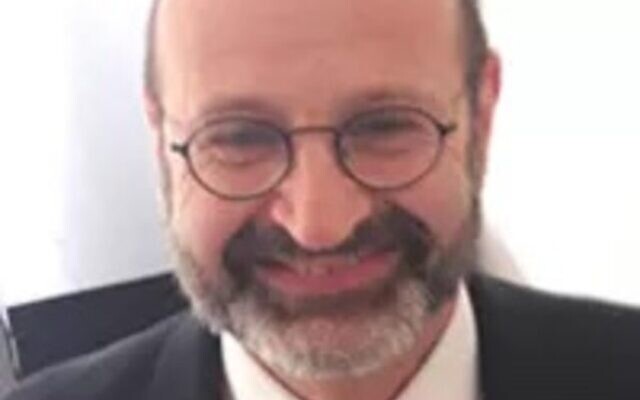On the medical front lines in Israel’s south
“You need to treat people while your heart is torn out.”
I met Debra West 13 years ago at a café in Jerusalem’s Mamilla Mall. Debra is an Australian-trained doctor who made aliyah. Her passion was to develop the specialty of emergency medicine in Israel. At that time there was no direct pathway to be an emergency specialist; doctors would have to train in another speciality such as surgery, internal medicine or orthopaedics first. Together, Debra and I and many committed and enthusiastic Israeli doctors created the course, which is now a compulsory component of Emergency Medicine training and required for recognition of specialisation in Israel.
Debra is the director of the Assuta Hospital in Ashdod, less than 20 kilometres from Gaza. I spoke with her three days after the terrorist attack that has left so many traumatised and bereaved around the world.
On the day of the attack her hospital faced an unprecedented challenge, admitting a staggering 70 trauma victims, all moderately or seriously wounded in just a span of hours. There was very little warning as soldiers, police and civilians arrived with penetrating injuries from bullets and shrapnel or burns from being caught in explosions.
It became immediately apparent that this was something that they had never experienced before. All the usual rules of triage were quickly modified; what would typically be categorised as a high-priority case under normal circumstances now assumed a lower priority as the severity of injuries continued to escalate. The victims poured in from the carnage while missiles were fired overhead.

Assuta Hospital was placed on its highest alert. Internal medicine physicians started discharging patients from their wards who would otherwise have stayed one or two days longer to make capacity for the incoming casualties. Many patients did not want to go home knowing that the hospital building was reinforced against blasts and missiles as Israel remained under fire.
The Emergency Department and trauma team rallied together, with staff members coming in from home as soon as the sirens rang out. Many faced the heart-wrenching choice of staying at work or going home to care for their families as partners were called up for military service.
Staff members who live on the southern border were trapped in their homes, sheltering in safe rooms for days, hearing the terrifying sounds of terrorists trying to breach their homes and the constant echoes of gunfire.
While Debra has the discretion to grant doctors exemptions from call-up to military service, she allows them to make their own decision, saying “I give them the choice to either stay in the ED or go to the army, wherever they feel they can be most valuable.”
Debra doesn’t know how many hours she has slept over the past days. She makes sure every day that her staff are being supported; their welfare is a priority. The hospital has organised psychologists and social workers to be onsite to help both patients and staff. Everyone has been personally affected. Many of the staff have partners, parents and children in the army whose whereabouts are unknown, but they continue to work and tend to the wounded.
For Debra, work serves as a refuge in some ways, a place where there’s no time to dwell on grief and trauma. Nevertheless, the toll is substantial, and in her own words, “You need to treat people while your heart is torn out.”
While this tragedy is unparalleled in its magnitude, Debra takes immense pride in the way her team, her hospital and her country have come together. The vulnerability they now feel is palpable, and the path forward remains uncertain. As Debra notes, “It will get worse before it gets better.”
She has set up simulation areas in the Department for practise in anticipation of further waves of violence. Here staff can practise putting in chest tubes and applying tourniquets. They run “on the spot” exercises to keep everyone sharp.
Assuta Hospital had a well-established disaster response protocol due to its proximity to the southern region and holds drills every three months. This preparation and constant vigilance held them in good stead despite the scale, speed and severity of this attack.
The hospitals further south received even more casualties and were overwhelmed. In the first 24 hours the government did not allow helicopter or road transport to distribute casualties to the centre, so the southern hospitals bore the brunt. The ambulances became overwhelmed transporting the wounded to the nearest medical centre before heading back to rescue more casualties; there was no availability to transport them to specialist trauma hospitals further away.
Debra recounted how many of the wounded wanted to be discharged back to the battlefield, to support their team and fight alongside them. Many were grappling with the fact that their lives had been saved while their friends’ lives were lost.
She has received many requests from doctors to come and help from within Israel and overseas. At the moment her department is experiencing something akin to the lull they observed during COVID; people don’t present to hospital unless they are very sick, fearing for their own safety in travelling on the roads.
After we spoke, the impact on Debra and her colleagues who work in Emergency Departments and emergency services was apparent. The physical and emotional stresses will continue to take a toll for many years after the war is over. As emergency physicians we are trained in disaster response, but this is of a scale that is profound and personal, and I doubt that anyone will be the same after it ends.
Professor George Braitberg is Head of Emergency Medicine of the Department of Critical Care at the University of Melbourne


comments